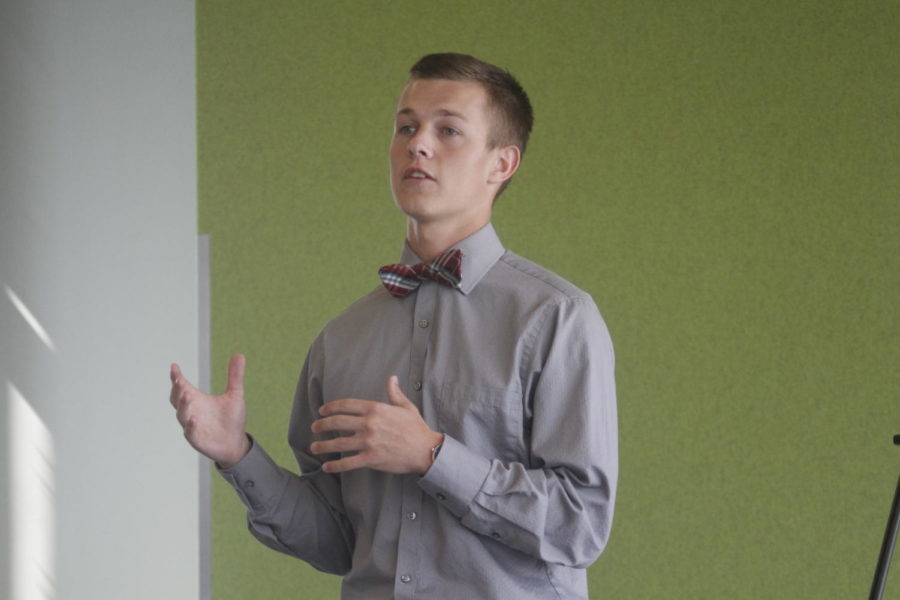Business Week leads to success at the Career Fair
Chris Anderson/Iowa State Daily
Jacob Crawford, then-freshman at Iowa State, shared that the biggest challenge in the Business Week Pitch Competition was being confident speaking in front of people. “Talking in front of people is definitely something I need to get better at,” Crawford said.
September 15, 2017
With the end of Business Week, the College of Business looks to broaden its involvement with students and allow for networking and personal development for its student body moving toward the career fair.
Business Week is a week full of informal networking opportunities for students to connect with employers featuring activities like: the CEO series, resume workshops, mock interviews, volunteering opportunities and even a trivia night.
“We continue to work to try to leverage the employers to really get them engaged on a more informal basis with the students,” said David Spalding, dean of the College of Business.
The importance of going to the career fair and student involvement with employers is a critical factor of business week. By engaging in an environment where a job is not immediately on the line, students can practice developing their soft skills.
“It is about trying to create a level of excitement in advance to the career fair,” Spalding said.
Spalding emphasizes the importance of making a continuous impression with employers by not only engaging them at the career fair, but also encouraging students to meet with them in an informal setting during Business Week.
A majority of involvement is seen among seniors and juniors, but the college urges freshman and sophomores to actively participate and begin to cultivate those relationships, especially at a younger age. Employers will notice a student’s interest when there is continuous engagement.
“The main metric I look at to determine whether we are doing our jobs here at the College of Business is our placement number,” Spalding said.
The placement number is the percentage of students that are actively engaged within six months of graduation from the undergraduate programs. Business Week when combined with the Career Fair allows students to build their networks to a further degree.
“We try to get students involved through classes, faculty and fun activities,” Spalding said.
Looking to next year’s Business Week, the college aims to make it better than it was this year. The college does this by gathering feedback from students through a survey. Trivia night was a new addition to Business Week, based off of surveying from the previous year.
“The biggest improvement we had was the service event. We worked with Meals for the Heartland where we packaged 20,000 meals,” said Gracen Kostelecky, chair of the Business Week’s planning committee.
Spalding says this year was the best Business Week so far, but the next one will be even better.
“After each year we survey students and sponsors on what we can improve on,” Kostelecky said.
Students are allowed the opportunity to voice what they believe worked in Business Week and what did not work, so as to improve the quality of the week. Students will be sent an email soon asking them to express their ideas for change.
When deciding what will happen during Business Week, the college combines events that are both fun for students with those that will prepare them for the career fair. Mixing in networking and formal dinners with donuts and trivia night is how the College of Business aims to appeal to both elements.
















